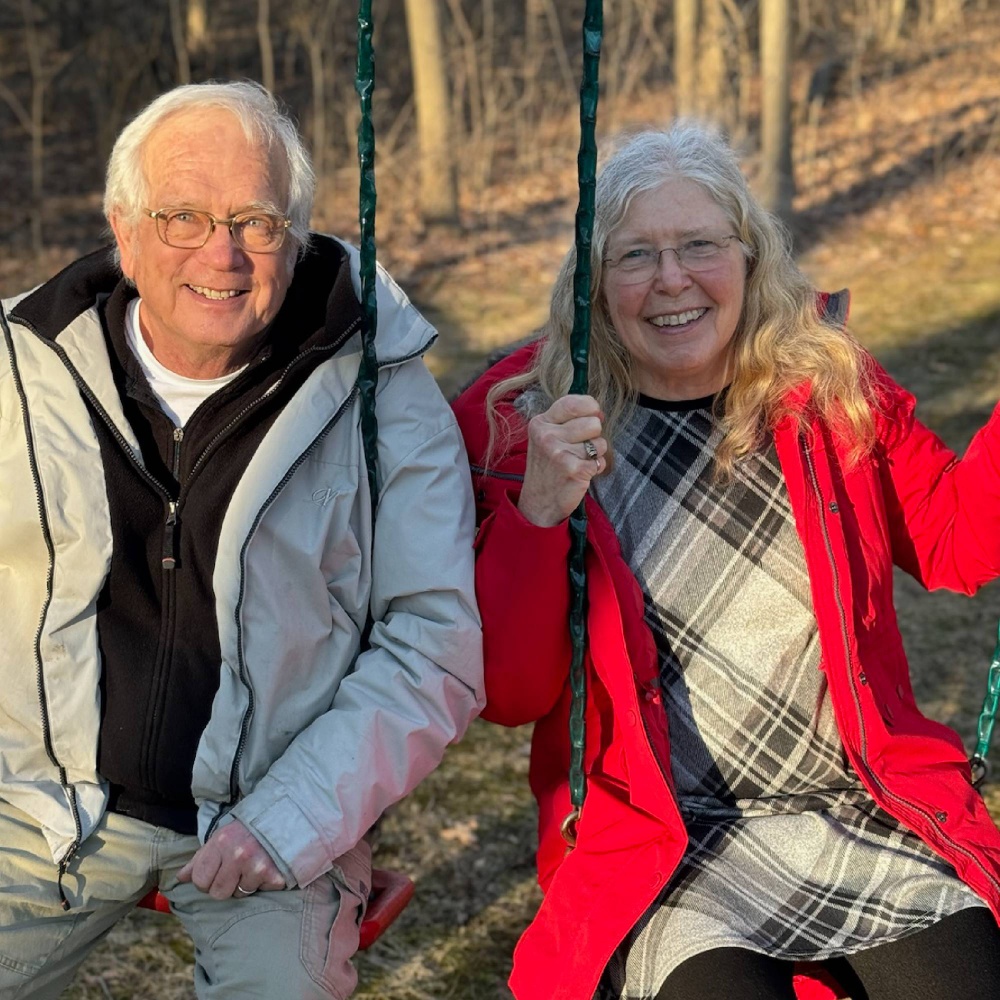PCEC News
Investing in the future
March 19, 2024

In 1989, after seven years teaching at the United States Naval Academy, Dr. Shirley Fleischmann joined the engineering department at Grand Valley State University. “The engineering program was just starting,” Professor Fleischmann explained. “It was a huge challenge, but there was a shared interest in really good teaching that I thought was important.”
Even though she was initially surprised to discover she enjoyed teaching, Professor Fleischmann realized she appreciated figuring out how to meet the diverse needs of her students. “I always thought that I would be a professional research engineer,” she said. “But, at the Naval Academy, I liked the contact with students and being able to build into them. I began to see it as an investment in the future of our profession. I've just enjoyed every single part of teaching.”
Balancing Academics and Experience
For Professor Fleischmann, Grand Valley’s focus on professional
immersion is a defining feature of the program. Every undergraduate
engineering student participates in a three-semester co-op that offers
a year of full-time, paid experience in the industry. “Engineering is
a difficult program that gets harder in the junior and senior years,”
she said. “But our students get to experience what really happens in
the profession, so they know they are actually interested.”
Despite their interest, Professor Fleischmann has witnessed students who struggled to stay in the program, noting that for “non-traditional students who also have families and other responsibilities…or transfer students whose scholarship money didn’t follow them,” it can be hard to find the time to fit everything in.
Proposing Solutions
After learning from a colleague that Grand Valley would match
employee giving to an endowed fund, Professor Fleischmann and her
husband, Frederick, established the Dr. Shirley T. & Frederick R.
Fleischmann Engineering Endowment to assist junior and senior level
engineering students with the cost of their tuition.
"We hope it will help, if just a little bit, relieve financial pressures," Professor Fleischmann said. "We hope the students will know they are not alone."
Seeing Potential
After watching his own four children rise to a variety of
challenges throughout their adolescence, Frederick Fleischmann
concluded that “most students, if they have the time available, are
capable of doing much more,” adding that, “if you provide them with
the opportunity to learn, they will eagerly grab it.” Professor
Fleischmann agreed that giving them the resources is an important part
of the equation. “That's part of the idea of the scholarship,” she
said. “To provide the resources. Learning works like interest. It
compounds and builds on itself.”
And a big part of that is simply having time – something they hope students receive because of the scholarship. “First of all, the time to study,” Professor Fleischmann said. “But also time for extracurricular things…It's all part of the college experience. Whether that extracurricular is an engineering society, or sports, or some other team activity on campus, they learn a lot when it’s something they choose to do themselves.”
Having received scholarships themselves, the couple’s children had time during their own college tenure to experience a wide range of activities. “They really didn't have to worry about tuition or housing costs, so they were able to do well and participate in a lot of other different things,” Fleischmann explained.
For Professor Fleischmann, that’s all part of her passion for teaching. “Students are coming into school with great potential,” she said. “We hope they see it, and it’s part of our job to help them discover what that potential is, and then push them toward it.”
To others considering a similar investment, the couple agrees it’s worth it. “It doesn't have to be a lot,” Fleischmann said. “A little bit goes a long way, especially for students who have an emergency come up.” For Professor Fleischmann, it’s an investment in the future, “and that’s always a good investment for me,” she concluded.
As Published on Horizon: Winter 2024.

